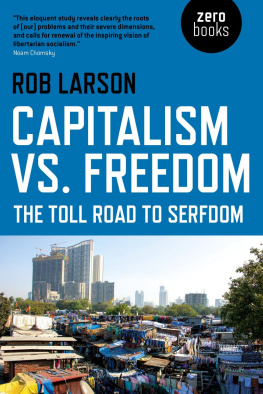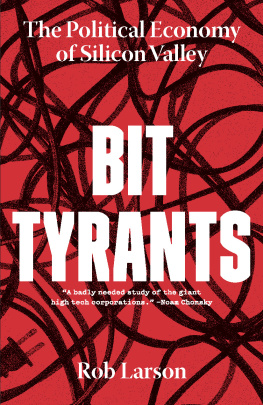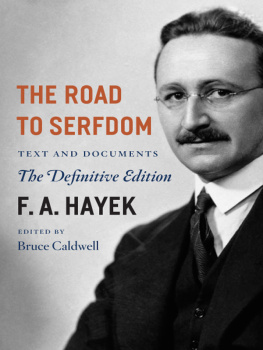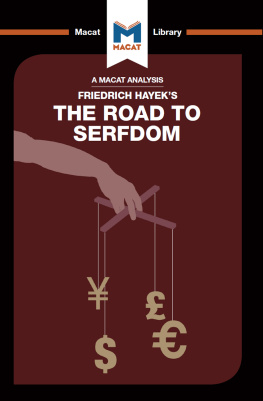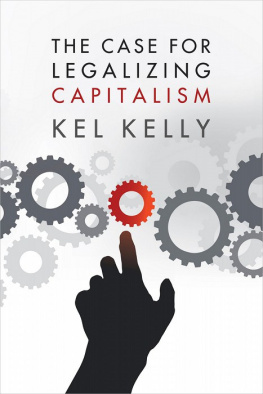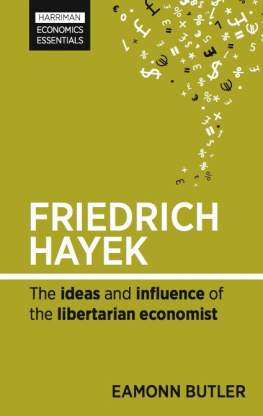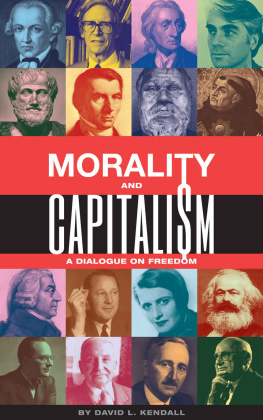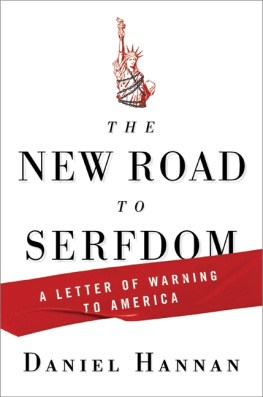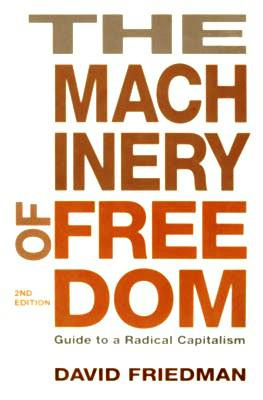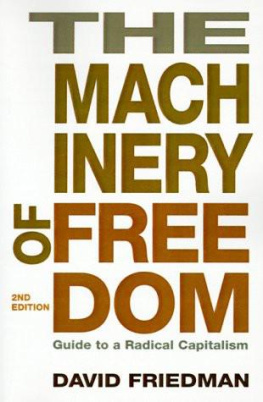What people are saying about
Capitalism vs. Freedom
The ravages of the neoliberal assault on the global population have by now reached the point where they are literally threatening decent survival, not in the distant future. This eloquent study reveals clearly the roots of the problems and their severe dimensions, and calls for renewal of the inspiring vision of libertarian socialism that was displaced and marginalized through the past century but can be revived within the guidelines that are outlined here, expanding on important initiatives already underway.
Noam Chomsky
In many ways the consciousness and propensities of young people in the US give reason to be optimistic about the future. On average our young generation is less racist, less homophobic, less sexist, and less militaristic than its forbears. In addition to these admirable characteristics, young Americans are also freedom loving, which is where Larsons book comes in. In the US more than anywhere else the cause of freedom has been appropriated by right-wing libertarians as a powerful ideological vehicle to gain political support for a conservative political agendato the point where if you tell a young American that you are a libertarian socialist they look at you in utter confusion, as if you have contradicted yourself in only two words. With a welcome sense of humor, Larson focuses on examining what freedom means and does not mean, why the right-wing libertarian political agenda subverts freedom rather than promotes it, and why a libertarian socialist program is how young Americans can achieve the freedom they long for.
Robin Hahnel
First published by Zero Books, 2018
Zero Books is an imprint of John Hunt Publishing Ltd., No. 3 East Street,
Alresford, Hampshire SO24 9EE, UK
www.johnhuntpublishing.com
www.zero-books.net
For distributor details and how to order please visit the Ordering section on our website.
Text copyright: Rob Larson 2017
ISBN: 978 1 78535 733 6
978 1 78535 734 3 (ebook)
Library of Congress Control Number: 2017940002
All rights reserved. Except for brief quotations in critical articles or reviews, no part of this book may be reproduced in any manner without prior written permission from the publishers.
The rights of Rob Larson as author have been asserted in accordance with the Copyright, Designs and Patents Act 1988.
A CIP catalogue record for this book is available from the British Library.
Design: Stuart Davies
Printed and bound by CPI Group (UK) Ltd, Croydon, CR0 4YY, UK
We operate a distinctive and ethical publishing philosophy in all areas of our business, from our global network of authors to production and worldwide distribution.
Contents
We have been cursed with the reign of gold long enough.
Eugene Debs, Chicago Railway Times, 1 January 1897
Introduction
What is Freedom?
This is a book about freedom. Before looking into how our economic system helps or hurts human freedom, its worth thinking about what freedom is. Most of us think of freedom as what you do when nothings stopping you. Its the ability to do what you want, within the limits of your free time and budget. Thats a good start, because it reminds us why we care about freedom in the first place. Because whatever you like to do, whoever you love, whatever makes you laugh or feel fulfilled, those things represent the value of social freedom to you. Whatever way you to like to waste your time, whichever career option youre free to follow or regret following, represent the fruits of freedom. How much freedom you have decides how much fun, adventure, enrichment, growth, peace and love you get to enjoy in your limited human years.
John Stuart Mills On Liberty is considered to be one of the founding philosophical essays on freedom, and it takes the position that freedom is about the nature and limits of the power which can be legitimately exercised by society over the individual.
So the concept of power appears quickly in any discussion of freedom. Social power means the ability to direct the actions of other people, to make an individual or group do what you want. Power may be exercised in different forms by different groups or institutions, but since it means forcing people to do things against their will, its considered to be antagonistic to liberty and freedom. For this reason, reductions of the power held within a society are thought to expand freedomfor example, if a government loses its power to police what people say, freedom of speech is therefore expanded. Often, related freedoms are grouped together and referred to as rights that individuals should possess, like the right to a free speech.
Mill wasnt absolute in these principles, concluding that There are also many positive acts for the benefit of others, which [a person] may rightfully be compelled to perform; such as, to give evidence in a court of justice; to bear his fair share in the common defence, or in any other joint work necessary to the interest of the society of which he enjoys the protection But, since the use of power or compulsion means forcing people to do things they wouldnt do otherwise, its considered to be antagonistic to personal liberty and the burden of justification is on the supporter of using force.
So Mills basic view was that power had to be limited, in order to protect a realm of freedom of action for individuals. This basic picture, in which freedom is mainly seen to be an absence of power and coercion over people, was described as negative freedom by the Russian-British philosopher Isaiah Berlin in his influential essay Two Concepts of Liberty. Berlin outlined a pair of complementary concepts of freedom, with negative liberty being essentially what Mill supported, that there ought to exist a certain minimum area of personal freedom which must on no account be violated, and recognizing that Where it is to be drawn is a matter of argument, indeed of haggling.
Recognizing this, Berlin also described positive liberty, which asks what we are free to actually do, rather than how much were constrained by power. Instead of asking, How much do societys power centers limit my freedom? positive freedom asks, What am I free to do? or What power centers decide what Im free to do? The difference is sometimes represented as the ideal of negative freedom, or freedom from, where liberty is unconstrained by some external power, on the one hand; and on the other, the positive liberty of freedom to do different things, like the right to share in an economys prosperity, or the right to vote and have a say in how collective decisions get made.
Positive freedoms people might have could evolve over time, with the societys material standard of living. It wouldnt make much sense to say a medieval farmer was being oppressed because he or she wasnt free to become a cosmetic surgeonthe societys level of wealth and knowledge at that time didnt allow many people to do much beside produce food. Once a society develops to the point that people are free to specialize and develop sophisticated skills, we might say that a young person should be free, or have a right, to study to become a surgeon if they choose.
Amartya Sen, the Nobel Prize-winning Indian economist, made this point when he wrote that Sometimes the lack of substantive freedoms relates directly to economic poverty, which robs people of the freedom to satisfy hunger, or to achieve sufficient nutrition, or to obtain remedies for treatable illnesses, or the opportunity to be adequately clothed or sheltered, or to enjoy clean water or sanitary facilities.

